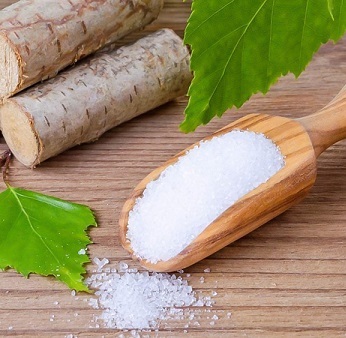| Understand sweeteners |
| TIME:2024-08-09 HITS:610 |
|
Our fondness for sweetness is innate. Babies will smile after tasting sweetness on the day they are born. However, excessive sugar intake can cause health problems such as overweight and obesity, and "reducing sugar" has always been advocated by government departments and professional institutions. How to meet people's demand for sweetness without excessive sugar intake? Sweeteners are a good choice. Recent reports have mentioned that sweeteners can increase the risk of type 2 diabetes. In fact, when it comes to increasing the risk of diabetes, sweeteners are no more obvious than sugar. If sugar is not "absolutely forbidden", then sweeteners are not necessarily to be refused. Sweeteners are widely used in over 100 countries and regions including the United States, the European Union and China. Some varieties have been in use for more than 100 years. Using sweeteners in accordance with relevant regulations and standards will not cause harm to human health. If you need to control or reduce your sugar intake, using sweeteners reasonably is a better choice, but sweeteners should not be regarded as weight-loss drugs. Losing weight should still be achieved by controlling the total energy intake and doing moderate exercise, so as to effectively reach the expected goal.
I.Are sweeteners safe? As long as it is used in accordance with the standards, there is no need to worry about it being harmful to health.
Recently, an article titled《ADA Announces Blacklist: These Beverages Must Not Be Consumed. Regret Not Knowing Earlier...》was published. The article has been widely circulated in the media. It mentioned that sweeteners can also increase the risk of type 2 diabetes, which has raised doubts about the safety of sweeteners. In fact, sugar is not the direct cause of type 2 diabetes, but only "one of the risk factors". This report indicates that sweeteners do not show an advantage over sugar in increasing the risk of diabetes. But after all, it is not "worse" than sugar. If sugar is not "absolutely inedible", then it is obviously unwise to say that sweeteners are "absolutely inedible". So, if one wants to pursue "ultimate health", then all sweetness should be rejected. If sweetness is needed, the emergence of sweeteners offers people an alternative to sugar. Recently, the Center for Food and Nutrition Information Exchange, the Health Communication Branch of the Chinese Preventive Medicine Association, the Food Hygiene Branch of the Chinese Preventive Medicine Association, and the Food and Nutrition Science Communication Alliance jointly released an《Interpretation of Knowledge Related to Food Sweeteners》. In this consensus, the safety of sweeteners has been widely recognized. Sweeteners are widely used in over 100 countries and regions including the United States, the European Union and China. Some varieties have been in use for more than 100 years. China's《National Food Safety Standard - Standard for the Use of Food Additives》(GB2760-2014) has specific regulations on the types of sweeteners that are allowed to be used, as well as their application scope and usage amount. These regulations are all based on the results of strict scientific risk assessment. Therefore, using sweeteners in accordance with relevant regulations and standards will not cause harm to human health. II.Can sweeteners help lose weight? To lose weight, one still needs to control the total energy intake and do moderate exercise.
Previously, people all thought that sweeteners could help with weight loss, but recently an article has found that sweeteners not only fail to help people lose weight, but may also cause them to gain weight. In fact, regarding whether sweeteners can help with weight loss, different research conclusions are completely different. Some conclusions are affirmative. For instance, in a randomized clinical trial conducted by the University of North Carolina in 2012, 318 overweight or obese adults were divided into three groups. The first group changed from drinking sugary beverages to drinking sugar-free carbonated beverages, the second group changed to drinking plain water, and the third group remained unchanged. After six months, the weight of the sugar-free beverage group (with added sweeteners) decreased significantly. An article in the American Journal of Clinical Nutrition in 2014 summarized 15 clinical randomized controlled trials and found that sweeteners significantly improved body weight, body mass index (BMI), body fat content and waist circumference. Similar conclusions were also reached in studies on children and adolescents. While some other studies have reached the opposite conclusion. For instance, an article published in the British Medical Journal (BMJ) in 2019 combined the results of 56 papers and found that the use of sweeteners had little to do with indicators such as body weight, body mass index, and heart disease. Some other animal experiments have even found that sweeteners actually increase the probability of obesity. The reasons are that they may affect the gut microbiota or "deceive the brain" and bring about side effects. These research results have also led some people to abandon sweeteners and return to the embrace of sucrose. The recently released《Interpretation of Knowledge Related to Food Sweeteners》clearly states that if you need to control or reduce sugar, the rational use of sweeteners is a better choice. Overweight and obesity are related to a combination of factors such as genetics, diet, physical activity and psychological factors. If there is a need to control weight, one should do so by controlling the total energy intake and engaging in moderate exercise to effectively achieve the expected goal. To sum up, sweeteners are not weight-loss drugs. If you have the intention to lose weight or control your weight and take action, sweeteners can serve as an auxiliary tool to help you better control your energy intake. If you expect sweeteners to help you lose weight instead of changing your already unhealthy diet and lifestyle, I'm afraid you will be disappointed.
References: [1]《Analysis of Food Safety Risks》, National Medical Products Administration. [2]《Scientific Interpretation of Sweeteners》, National Medical Products Administration. [3]《Blue Book on Obesity Prevention and Control in China》
Disclaimer: The news and information released on the ChemicalBook platform are provided only as knowledge and are intended for reference and exchange among industry insiders. No guarantee is made regarding their accuracy and completeness. You should not use this to replace your independent judgment. Therefore, any risks arising from the information should be borne by yourself and have nothing to do with ChemicalBook. The article covers all contents, including but not limited to text, pictures, etc. If there is any infringement, please contact us for handling!
|

 Focus on plant active ingredients
Focus on plant active ingredients  React to complaint within 24 hours once receive it
React to complaint within 24 hours once receive it  Free sample 10~50g
Free sample 10~50g  Serve multiple enterprises
Serve multiple enterprises 
 Tel:+86-135 2651 0795
Tel:+86-135 2651 0795 Add:Tongying Enterprise Headquarters, Intersection of Laodong Street and University South Road, Xinmi, Zhengzhou City, China.
Add:Tongying Enterprise Headquarters, Intersection of Laodong Street and University South Road, Xinmi, Zhengzhou City, China. Tel:+86-135 2651 0795
Tel:+86-135 2651 0795 Email:cassie@jy-additives.com
Email:cassie@jy-additives.com